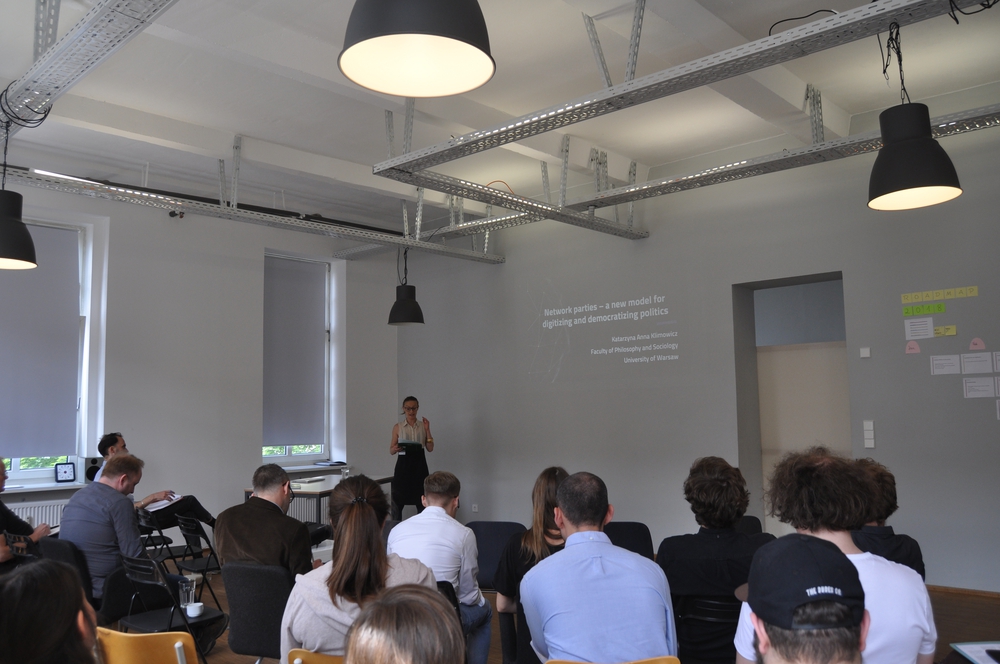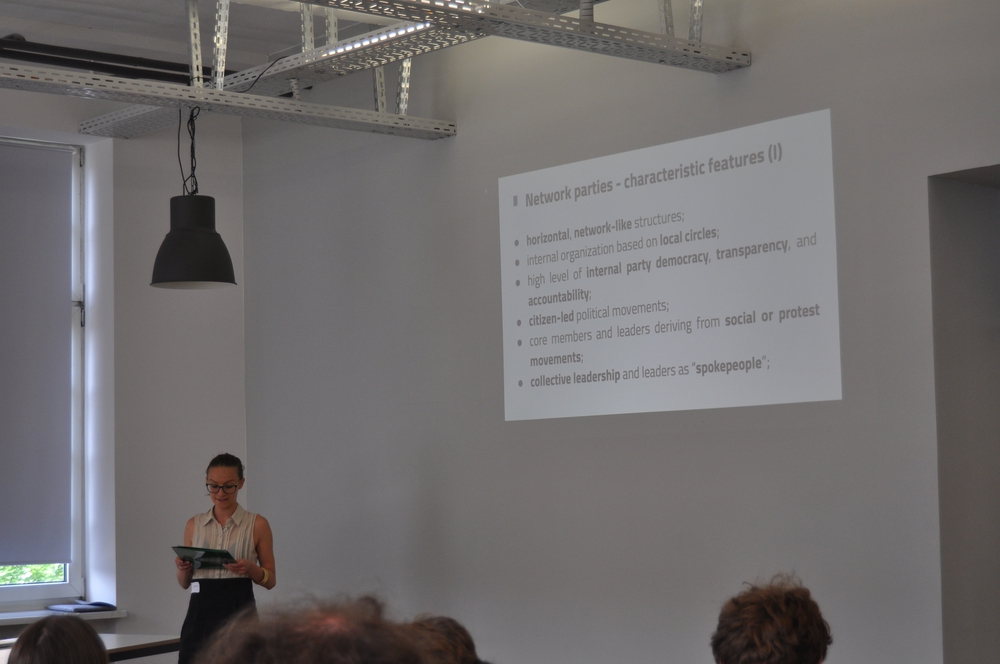
Networking Parties - a new model for digitizing and democratizing politics
FoLD18, 17.05.2018
Katarzyna Anna Klimowicz is PhD candidate at University of Warsaw (Poland) and presents her research about the emergence of networking parties promoting citizen-centered politics, such as Razem in Poland or Podemos in Spain.

In order to illustrate these features, Katarzyna, subsequently, presents some
case studies, as for instance Barcelona en Comú (Spain) who uses the digital
tool "decidim" and the networking-party Razem (Poland) who uses a forum for citizen
participation. The most controversial example here is MoVimento from Italy. This party uses a
platform that enables decision-making online and which has about 100.000 users.
It is a private tool and not open source. Therefore, the ownership as well as
the knowledge about the tool are centred in a few people, which is problematic with
regard to questions like transparency, accountability etc. The common features
that all of these networking parties use on their platforms are: Collective
decision-making, Deliberation, Voting, Sharing of documents and Crowdsourcing.

In conclusion, Katarzyna
argues that digital tools are not the final solution to all democratic
problems. However, digital tools are of value as an extension of existing methods.
They possess the power to improve conventional structures by introducing a more
holistic approach and to broaden the possibilities within a party. Therefore,
the application of digital tools is not about finding the final solution to all
our problems but rather to open up our conventional ways and structures in
which we operate and in which decision-making takes place.